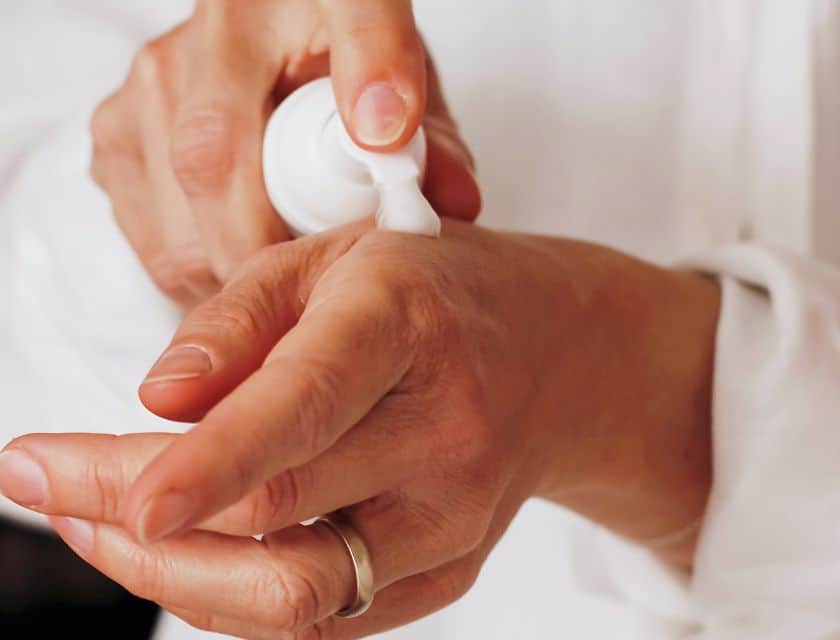Skin Health
Benzene and Sunscreen: A Dermatologist Weighs In
We're sharing the details on what to know about this chemical and how to avoid it.

According to the CDC, benzene is a colorless liquid that has a sweet odor and evaporates into the air very quickly. Benzene is formed during any burning process, so naturally by volcanoes and forest fires, but human activities (smoking and any gasoline emission) also lead to benzene formation. It is used to make plastics, resins, rubbers, dyes, detergents, etc. Therefore, as you can imagine, benzene is all around us.
Outdoor air contains low levels of benzene, but indoor air often has higher levels. Long term exposure (>1 year) to higher levels of benzene can suppress bone marrow production of red and white blood cells. The Department of Health and Human Services has determined that long-term exposure to high levels of benzene in the air can cause leukemia, cancer of the blood-forming organs.
Is Benzene an ingredient in sunscreen?
No, benzene is not an ingredient in sunscreen, it is a by-product that enters the formulation during the production process.
Who is Valisure and how did they test the sunscreens?
Valisure is a pharmacy group that routinely audits consumer goods and they recently tested and detected high levels of benzene in several brands of sunscreen and after-sun care products. They compared the levels found in sunscreens with oral exposure levels of a benchmark chemical NDMA.
Should I be worried?
As a comparison, if we applied a sunscreen with the highest level of benzene contamination all over our body, that would be similar to breathing city air for less than 24 hours. What’s more, since it rapidly evaporates, even if we put it all over our body, it is unlikely to be absorbed into the body at a similar level. It’s important to remember that we all likely have some level in our blood, regardless of sunscreen use.
In this case, although we believe that benzene should be eliminated from skin care products as much as possible, this study cannot be used to conclude that sunscreens are carcinogenic due to the presence of benzene.
Benzene and Sunscreen: the Bottom Line
Benzene and Sunscreen: all the info you need to know featured by top Dermatologists in Raleigh, Clara Dermatology.
We know that UV exposure IS carcinogenic-it causes skin cancer AND skin cancer is the most common type of cancer. According to the CDC, about 4.3 million adults are treated for the most common types of skin cancer – basal cell and squamous cell carcinomas annually and these are strongly related to UV exposure. Melanoma, the deadliest form of skin cancer, is caused by sun exposure in 86 percent of cases. We can’t emphasize how important regular sun protection is for preventing cancer. So, in our quest to use safe skin products and to minimize unnecessary exposure to harmful ingredients in all our products, we can stick with brands we feel follow the same principle. Here is a link to products Valisure tested that did not contain benzene and you’ll recognize several from our favorite brand Supergoop – specifically the Play Mousse and (re)-Setting powder – and other brands we often recommend, including SunBum! Finally, the majority of the worst offenders were sprays or gels, so opt for a cream, lotion, stick or mousse to minimize your exposure.
Get your customized skin care plan.
We respect your privacy and your inbox. We’ll never sell your address. Unsubscribe anytime.
© 2022 Clara Dermatology. All rights reserved.